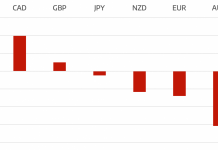Ever wonder why people bother with checking accounts? It’s not just about stashing cash. Checking accounts offer a ton of perks that can make life a whole lot easier. From the convenience of debit cards to the peace of mind with FDIC insurance, there’s a lot to love. Plus, with features like online banking and direct deposits, managing your money becomes a breeze. Let’s dive into the benefits and see why a checking account might just be your new best friend.
Key Takeaways
- Checking accounts provide easy access to your money through debit cards and ATMs, making daily transactions simple.
- FDIC insurance on checking accounts offers security, protecting your funds up to $250,000.
- Direct deposits streamline your income, getting your paycheck into your account faster without the hassle of paper checks.
- Online and mobile banking features help you manage your finances on the go, track spending, and pay bills easily.
- Some checking accounts offer interest, allowing your money to grow while still being readily accessible.
Understanding the Basics of Checking Accounts

Definition and Purpose of Checking Accounts
Checking accounts are financial tools that allow individuals to manage their daily transactions and cash flow. They are designed for frequent access and transactions, unlike savings accounts that are meant for long-term storage of funds. With a checking account, you can deposit money, write checks, and use a debit card for purchases, making it a versatile option for everyday financial needs.
How Checking Accounts Differ from Savings Accounts
While both checking and savings accounts serve as places to store money, they have distinct purposes and features. Checking accounts are primarily used for regular transactions, such as paying bills or making purchases, whereas savings accounts are intended for accumulating funds over time. Typically, savings accounts offer higher interest rates, but checking accounts provide greater liquidity, allowing easy access to funds when needed.
Common Features of Checking Accounts
Checking accounts come with a variety of features that cater to different banking needs:
- Debit Cards: Most checking accounts provide a debit card, enabling users to make purchases directly from their account balance.
- Online Banking: Many banks offer online platforms for managing checking accounts, allowing for easy transfers, bill payments, and account monitoring.
- ATM Access: Account holders can withdraw cash or check their balance at ATMs, providing convenient access to their funds.
- Direct Deposit: This feature allows paychecks to be automatically deposited into the account, eliminating the need for paper checks and ensuring timely access to funds.
In essence, checking accounts are a cornerstone of personal finance, offering a blend of accessibility and convenience that supports day-to-day financial activities. Whether you’re paying rent or buying groceries, a checking account simplifies the process by keeping your money easily accessible.
The Convenience of Easy Access to Funds
Checking accounts offer significant convenience when it comes to accessing your money. Let’s explore some of the ways these accounts make managing your finances easier.
Using Debit Cards for Everyday Purchases
One of the most straightforward ways to access funds in a checking account is through a debit card. With a debit card, you can easily make purchases at stores or online. Every time you swipe your card, the amount is directly deducted from your checking account, making it simple to track spending and manage your budget.
Accessing Cash Through ATMs
Need cash? No problem. Checking accounts typically come with ATM access, allowing you to withdraw money anytime. Whether you’re at home or traveling, ATMs are widely available, making it easy to get cash when you need it. Just remember that using ATMs outside your bank’s network might incur fees.
Online and Mobile Banking Features
In today’s digital world, online and mobile banking are almost essential. With these features, you can check your balance, transfer funds, and even deposit checks without visiting a branch. Mobile banking apps also let you set up alerts for low balances or large withdrawals, helping you stay on top of your finances. This convenience means less time managing your money and more time enjoying life.
Security and Peace of Mind with Checking Accounts

FDIC Insurance and Account Safety
When you deposit your money into a checking account, you can rest easy knowing it’s protected by the Federal Deposit Insurance Corporation (FDIC). This insurance covers up to $250,000 per depositor, per bank. This means that even if your bank goes under, your money is still safe. It’s a comforting thought, especially if you’ve been keeping cash at home, which isn’t insured against theft or loss.
Fraud Protection and Alerts
Banks have stepped up their game when it comes to protecting your money from fraud. Most banks employ a mix of encryption, multifactor authentication, and real-time alerts to keep your account secure. If any suspicious activity is detected, you’ll be notified immediately, allowing you to act quickly. This kind of proactive monitoring helps in minimizing the risk of unauthorized transactions.
Managing Risk with Account Monitoring
Keeping an eye on your account has never been easier with the tools available today. Many banks offer mobile apps that let you monitor your transactions in real time. You can set up alerts for specific activities, like when your balance dips below a certain amount or when large withdrawals occur. This constant monitoring not only helps in managing your money better but also adds an extra layer of security.
Having a checking account isn’t just about convenience; it’s about having peace of mind knowing your money is secure and accessible whenever you need it. For more insights into managing your finances effectively, consider exploring the FXSI initiative that dives into reconciling bank accounts and other financial strategies.
Streamlining Payments and Deposits
Setting Up Direct Deposits
Direct deposits are a game-changer for anyone with a checking account. Instead of waiting for a paper check, your paycheck or other regular payments like tax refunds can be directly deposited into your account. This means faster access to your money without the hassle of visiting a bank or ATM. To set this up, you’ll need to provide your employer or payer with your checking account number and bank’s routing number.
Utilizing Online Bill Pay Services
Paying bills doesn’t have to be a chore. With online bill pay, you can automate your payments directly from your checking account. No more writing checks or remembering due dates. You can set up one-time or recurring payments, ensuring your bills are paid on time every month. It’s not only convenient but also helps avoid late fees and keeps your financial life organized.
Peer-to-Peer Payment Options
Gone are the days of needing cash to split a dinner bill or pay a friend back. With peer-to-peer payment services linked to your checking account, you can send money instantly to anyone with just a few taps on your phone. Services like PayPal, Venmo, or Zelle make it easy to manage these transactions securely and efficiently.
Having a checking account simplifies your financial transactions, making it easier to manage your money and keep track of your spending. Whether you’re paying bills, receiving payments, or sending money to friends, a checking account provides the flexibility and tools needed to handle your finances with ease.
These features of checking accounts not only save time but also offer peace of mind, knowing your payments and deposits are managed efficiently.
Tracking and Managing Your Finances

Keeping tabs on your money is super important, and a checking account can really help you do that.
Monitoring Spending and Budgeting
With a checking account, you have a clear view of your spending habits. Regularly checking your account balance and transaction history can prevent overspending. Most banks offer online tools and apps that help you track your expenses and set budgets. You can categorize your spending, see where your money goes, and adjust accordingly.
Record Keeping and Financial Planning
A checking account makes record-keeping a breeze. Monthly statements provide a detailed breakdown of all your transactions. This is handy for tax time or if you need to prove a purchase. Plus, having all your financial data in one place helps with planning future expenses or savings goals.
Tools for Financial Management
Many banks offer tools that sync with your checking account to help manage your finances. These tools can include automatic alerts for low balances, reminders for bill payments, and even tips for saving money. By using these features, you can stay on top of your finances with ease.
A checking account isn’t just about spending money; it’s about understanding and controlling your financial life. By leveraging the tools and insights it offers, you can make informed decisions and avoid financial pitfalls.
For more on the basics of managing your finances, including how to write and deposit checks, consider exploring resources on personal finance literacy.
Exploring Additional Benefits of Checking Accounts
Checking accounts are not just about basic transactions; they offer a range of additional benefits that can make managing your finances easier and more rewarding.
Potential to Earn Interest
While not all checking accounts offer interest, some do provide the opportunity to earn a modest return on your balance. This means your money can grow a little even as it sits in your account. It’s a small but nice perk, especially when you think about how often you use your checking account.
Avoiding Fees and Minimum Balance Requirements
Many banks offer checking accounts that come with no monthly maintenance fees or minimum balance requirements. This can be a huge relief if you’re worried about unexpected charges eating into your funds. Here’s a quick list of what to look for:
- No monthly maintenance fees: Keep more of your money without worrying about paying just to have an account.
- No minimum balance requirements: Avoid penalties for not maintaining a certain amount in your account.
- Fee waivers: Some accounts waive fees if you meet certain conditions like direct deposits.
Specialized Checking Accounts for Different Needs
There are various types of checking accounts tailored to meet specific needs. Whether you’re a student, a senior, or a business owner, there’s likely an account designed to suit your lifestyle. Here are some examples:
- Student checking accounts: Often come with perks like no fees or low minimum requirements.
- Senior checking accounts: May offer benefits like free checks or better interest rates.
- Business checking accounts: Designed to handle more transactions and may include tools for managing business finances.
Checking accounts can be more than just a place to store your money. With the right account, you can avoid fees, earn a little interest, and find features that fit your life perfectly.
Conclusion
In wrapping up, a checking account is more than just a place to stash your cash. It’s a versatile tool that can simplify your financial life. From the convenience of direct deposits to the ease of tracking your spending, checking accounts offer a range of benefits that make managing money straightforward. Plus, with features like debit cards and online banking, accessing your funds has never been easier. While there are some downsides, like potential fees and lower interest rates compared to savings accounts, the advantages often outweigh these concerns. So, if you’re looking for a reliable way to handle your day-to-day finances, a checking account might just be the right fit for you.
Frequently Asked Questions
What is a checking account?
A checking account is a type of bank account that allows you to deposit money and withdraw it easily using checks, debit cards, or online transfers. It’s meant for daily use and helps manage your spending and bills.
How is a checking account different from a savings account?
A checking account is designed for frequent transactions like paying bills or shopping, while a savings account is meant for storing money and earning interest over time. Checking accounts usually don’t earn much interest.
Can I earn interest with a checking account?
Some checking accounts offer interest, but it’s often lower than savings accounts. If earning interest is important to you, look for a checking account that offers this feature.
What is FDIC insurance, and why is it important?
FDIC insurance protects the money in your checking account up to $250,000 per depositor, per bank. It means your money is safe even if the bank fails.
How can I avoid fees with a checking account?
To avoid fees, choose a checking account with no monthly fees or meet the requirements to waive them, like maintaining a minimum balance or setting up direct deposits.
What should I do if I lose my debit card?
If you lose your debit card, contact your bank immediately to report it. They can freeze the card to prevent unauthorized use and issue you a new one.

Peyman Khosravani is a global blockchain and digital transformation expert with a passion for marketing, futuristic ideas, analytics insights, startup businesses, and effective communications. He has extensive experience in blockchain and DeFi projects and is committed to using technology to bring justice and fairness to society and promote freedom. Peyman has worked with international organizations to improve digital transformation strategies and data-gathering strategies that help identify customer touchpoints and sources of data that tell the story of what is happening. With his expertise in blockchain, digital transformation, marketing, analytics insights, startup businesses, and effective communications, Peyman is dedicated to helping businesses succeed in the digital age. He believes that technology can be used as a tool for positive change in the world.




































